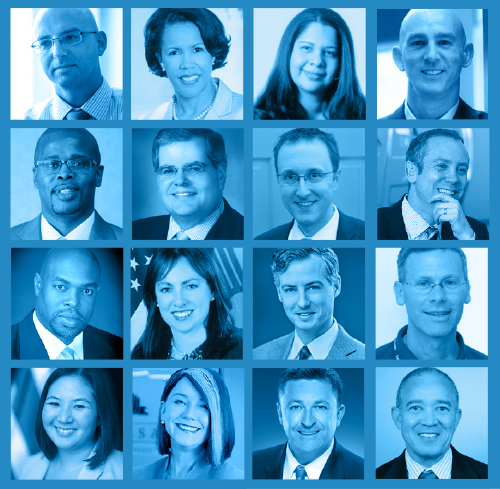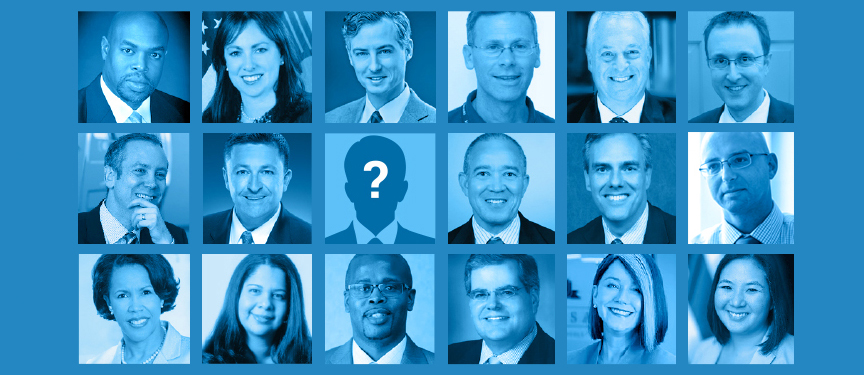
SUBSCRIBE
TO MONTHLY UPDATES
We'll send you information that
will keep you up to date on CFC

By Mike Magee
CEO, Chiefs for Change
Sweeping changes to federal law and national politics have placed state and city leaders squarely in the driver’s seat of what education looks and feels like for America’s children. Especially in a time of social, political, and technological ferment, the result might have been a story of fractured and opposed approaches, with the needs of students lost in the noise.
The fact is the opposite — a functional consensus among the nation’s boldest education leaders, producing not identical policies, but a set of vital principles that drive approaches shaped to the needs of each of their communities. It’s a set of principles born of extensive work, with the needs of students at the center. It’s worthy of the attention of the nation’s education policymakers because it represents what’s working for kids, with a focus on practice, not politics.
The principles crystallize conversations that took place in August among the members of the group I lead, Chiefs for Change, a bipartisan alliance of results-driven state and large-district education chiefs that advocates for strong, proven policy nationwide. Collectively, the members who gathered for three days in Boston represent more than 5 million children, and they share a vision that all American children can lead fulfilling, self-determined lives as adults — as well as a deep dissatisfaction with an education system in which low-income students have less than a 10 percent chance of receiving an associate’s or bachelor’s degree.
Every day, these leaders wake up — in Baltimore and Baton Rouge, Colorado and New Mexico, Texas and Tennessee, from Washington, D.C., to Hawaii and many states and cities in between — face-to-face with America’s greatest problem: the daily fact that historically disadvantaged students do not have regular or fair access to high-achieving schools, fully prepared and supported teachers, challenging curricula, and affordable pathways to college and meaningful careers. And every day they set about trying to solve the problem, opening as many doors to opportunity as they can, as fast as they can, for every child.
We gathered in Boston with a singular question: At a time of tumult and polarization in the country, of hyperpartisanship and gridlock in Washington, is it possible for such a diverse group of leaders to form a bipartisan consensus about the path forward for America’s schools?
The answer was yes. So today, we’re releasing our shared vision. In brief, the key elements are:
Real access to excellent public school choices
First, we believe that every student deserves access to excellent schools. Our north star is a system in which all students, irrespective of geography or economic means, have fair access to all schools and real pathways to college and meaningful careers. That means clear information for parents, equitable access to great schools, and fair funding to meet students’ needs.
Challenging, worthwhile, engaging curriculum
We believe that excellent schools use first-rate curriculum. For generations, American schoolchildren have learned through the lens of underexamined textbooks. Today, teachers have growing opportunities to bring an entrepreneurial approach to assembling the content they teach — and we owe them support and leadership that meet the needs of a new, technological age. All students deserve a learning experience that challenges them, feels relevant to them, ignites their curiosity, and prepares them for college, meaningful careers, and life. We must regularly review learning materials to ensure they teach valuable knowledge and skills and remove barriers that stand between our students and the best available teaching tools.
A focus on excellent teaching, and preparation and supports for teachers
We believe that teachers are professionals, and they should be treated that way. We must ensure that teachers have the preparation and support they need: that they are prepared in the classroom setting by school-based educators; that they are rewarded for their professional skills and their students’ learning; that they are afforded opportunities to advance their careers without leaving the classroom; and that they are supported with timely and meaningful evaluation and feedback. We also must work to change outdated and bureaucratic systems of educator preparation, development, and evaluation, along with other obstacles that prevent students from having access to prepared, supported, and effective teachers.
Accountability
We believe in accountability. You can’t aspire to excellence without defining it. Schools should be evaluated based on student learning, in unambiguous terms and according to college- and career-readiness standards benchmarked against those of high-performing states and countries. When these ratings show unacceptably low results for years at a time, state and district leaders must apply solutions that are proven to help students learn.
Freedom from fear, freedom to learn
America’s schools should reflect our democracy’s highest ideals. They must be safe, welcoming communities that foster informed, civil debate, teaching students to engage with different points of view. We reject hatred and bigotry as well as dogmatic approaches to learning that stifle discussion, regardless of where they fall on the political spectrum.
In a time when it’s easy to feel like this country doesn’t agree on much, it’s heartening to know that from Hawaii to Tennessee, from Boston to Broward County, there’s consensus on what’s making a difference for students. The principles these leaders have put forward are easy to espouse in rhetoric but take courage to act on, consistently and in the face of pushback. When leaders demonstrate that courage, students and families benefit.